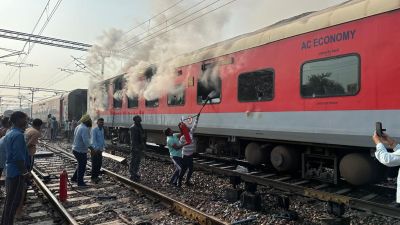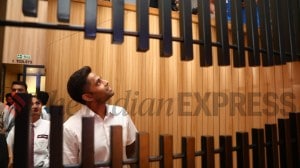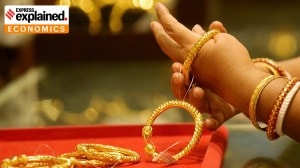The party in China, an insight
The secretive workings of the Communist Party of China , founded in 1921, continue to fascinate the outside world even as capitalism has set down roots in Chinese soil.

The secretive workings of the Communist Party of China (CPC), founded in 1921, continue to fascinate the outside world even as capitalism has set down roots in Chinese soil. Inspired by the Russian Revolution in 1917 and based on the ideology of Marxism-Leninism, to this day the CPC brooks no political competition in spite of economic reforms which have China positioned as a leading world economy. The party exercises control over its members through the principle of “democratic centralism,” which makes each member subordinate to the party organisation.
• Power Structure In theory, the top of the pyramid is the National Party Congress, which is convened once every five years and brings together more than two thousand delegates from party organisations across the country. The Congress’ main function is to elect a Central Committee of two hundred full members. In turn, the Central Committee’s main job is to elect a new Politburo of twenty-four members and its smaller Standing Committee of nine. In between the Party Congresses, the Central Committee meets every year in the fall for a plenary session to review the work of the Standing Committee.
• 17th National Congress Premier Wen Jiabao called the Seventeenth National Congress “of great importance to be held at a time when China’s reform and development have entered a crucial stage.” The congress holds significance for the rest of the world because it will pick the next generation of leaders in China as well as lay down the blueprint for China’s national development for the next five years. The party is expected to continue on its chosen path of what it calls a “scientific concept” of development. Since coming to power in 2002, President Jintao has emphasised development that is in harmony with its environment and takes growing economic inequality into account.
• Evolution of Party Ideology The party has evolved over time to adapt to changing world realities. Under the first-generation leader, Mao Zedong, the CPC pursued policies like the Cultural Revolution (1966-1976) that caused economic stagnation, deep political repression, and millions of deaths. Mao’s successor, Deng Xiaoping, carried out reforms and opened up China’s economy, following a policy of building socialism with Chinese characteristics. At the Sixteenth National Congress in 2002, third-generation leader Jiang Zemin introduced the concept of “Three Represents” to keep pace with the times and represent the interests of all ethnic groups in Chinese society. The Seventeenth National Congress is expected to push Hu’s idea of harmonious development forward.
• Chances of Political Reform There has been speculation that in order to make the party more capable and accountable, Hu Jintao has introduced democracy within it. But Bush says, “This generation of leaders believes very much in one-party rule. Their priority is to perfect this.” Experts say creating accountability is especially hard when the party is so riddled with corruption. In a recent discussion of China’s political landscape, Minxin Pei of the Carnegie Endowment for International Peace said that at the current rate of growth, no matter what happens, within the next ten to fifteen years “China is going to enter a range in which despite the leaders’ concerns, democratic pressures will build up.” In recent years, China has seen a rise in social protests, but as this backgrounder explains such demonstrations are not necessarily a push for democracy.






- 01
- 02
- 03
- 04
- 05

























